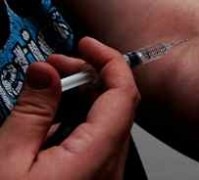
Is there a link between sports injuries and brain damage?
The suicide of another former football player has many wondering if there is a definitive link between sports injuries and brain damage or some type of brain atrophy.
Junior Seau, was a linebacker in the National Football League (NFL) who transcended American football to become a San Diego sports icon. Known for his passionate playing style, he was a 10-time All-Pro, 12-time Pro Bowl selection, and named to the NFL 1990s All-Decade Team. Seau retired from pro football in 2010
He committed suicide by shooting himself in the chest on May 2, 2012. Seau had been involved in some other incidents including domestic abuse. Shortly after being released from jail in that case back in 2010, he drove his SUV off of a cliff. Some wondered then if he really was attempting suicide. He had said that had fallen asleep.
Seau’s suicide and particularly in the matter in which he ended his life has drawn comparisons to to the death of former Chicago Bears safety Dave Duerson. Duerson left a suicide note explaining he shot himself in the chest because he wanted his brain to be sent to the “NFL brain bank” for further study.
Did Seau shoot himself in the chest rather than in the head because he too wished to have his brain studied? Since he did not leave a note, we will never know. His family originally agreed to donate his brain for further study however Junior Seau’s family is now revisiting their original decision to donate his brain.
What about boxing? Many wondered if Muhammad Ali developed Parkinson’s disease due to the numerous blows her received to the head during the course of this boxing career.
To help answer some of the questions and determine if there really a ink between sports injuries and brain damage, the Brain Injury Research Institute (BIRI) also known unofficially as the “NFL Brain Bank” has examined over 20 brains including former NFL players Mike Webster, Justin Strzelczyk, Terry Long, and Andre Waters. The bank is necessary because a routine autopsy won’t detect specific diseases and trauma to the brain so the brain bank serves an important function.
In Las Vegas, a group of local doctors is learning the serious side effects that getting hit in the head can have on the brain. Doctors say studies show the damage causes dementia, Parkinson’s, and Alzheimer’s long before the fighters feel any effects.
The Cleveland Clinic Lou Ruvo Center for Brain Health is conducting a study of 182 subjects that has the support of the The Nevada Athletic Commission, Top Rank Boxing, and the UFC.
With all the research being conducted, there is renewed hope that doctors will be able to conclusively determine if there is a link between sports injuries and brain damage.
Related articles


 NFL player Junior Seau had brain disease CTE
NFL player Junior Seau had brain disease CTE
 Follow
Follow

